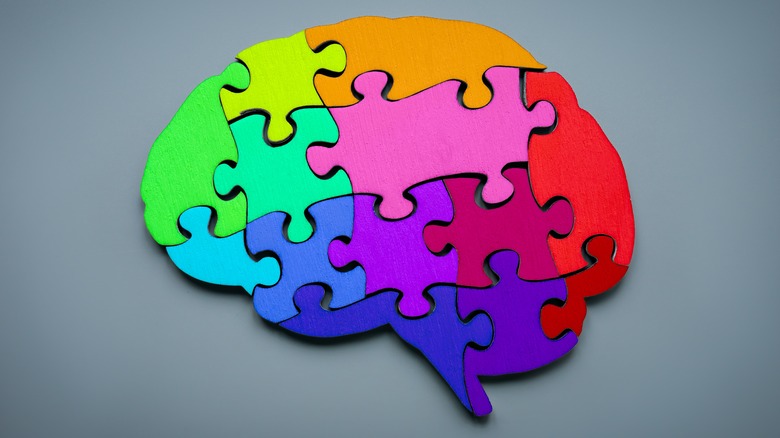Myths About Dyslexia That Have Already Been Busted
Dyslexia, one of the most common learning disorders, affects millions of people worldwide. Estimates indicate that up to 15% of Americans, or 43.3 million adults and children, have this condition. Additionally, teens with untreated dyslexia are more likely to quit school and lose their jobs or end up behind bars than those who get treatment.
This condition makes it difficult to read and identify speech sounds, explains a 2020 research paper published in the Oxford Review of Education. Like other neurodevelopmental disorders, it develops in childhood and can be passed from parents to children. What's more, about 40% of those with dyslexia will develop oral language problems that can affect their ability to work and function in society. Some may also struggle with gross motor control and experience behavioral, emotional, or social difficulties.
While there's no cure for dyslexia, you can still have a normal life and reach your personal and professional goals. But first, you'll have to learn to deal with the stigma surrounding this condition and focus on building your confidence. With that in mind, here's the truth behind some of the common myths about dyslexia.
Myth: Smart people cannot have dyslexia
Contrary to popular belief, dyslexia has nothing to do with a person's intelligence or IQ. In fact, many successful people and influential figures have this condition, according to the Institute for Multi-Sensory Education. Award-winning journalist Anderson Cooper, physicist Albert Einstein, artist Pablo Picasso, entrepreneur Richard Branson, singer Gwen Stefani, and comedian Robin Williams are just a few to mention.
Clinical research shows that individuals with dyslexia have similar brain patterns as any other person, reports the National Institutes of Health. While it's true that dyslexia can affect your ability to learn, and it's labeled a disability, some experts believe that people diagnosed with this condition are gifted in one area or another. For example, they may have a vivid imagination, think multi-dimensionally, and demonstrate an innate curiosity. "We know that very, very many people with dyslexia have very high IQs," said speech-language pathologist Devon Barnes in an interview with LearnFast. "In fact, at the moment, I'm working with about four or five students between the ages of nine and 16, who have IQs in the superior range. But they just happen to have dyslexia." She also explains that many of her students are talented artists, musicians, or athletes despite their condition. In such cases, parents and teachers should focus on helping those children develop their strengths and overcome the challenges they face.
Myth: Medication can cure dyslexia
As mentioned earlier, dyslexia is a neurodevelopmental disorder, and therefore, it cannot be cured. Medications, vision therapy, and other potential treatments won't reverse this condition, according to the organization Understood. However, there are steps you can take to manage its symptoms and help your child overcome his limitations.
A good example is multisensory teaching, a technique that facilitates reading in children with this disorder. Educators may use audio and video materials or everyday objects to help students improve their vocabulary and recognize written words, explains Waterford. Assistive technologies, such as text-to-speech software, may be helpful, too, and can be used both at home and in the classroom.
The Child Mind Institute also recommends RAVE-O, Preventing Academic Failure (PAF), the Orton-Gillingham Approach, and other learning programs designed for students with dyslexia. Experts suggest choosing a program that includes one-on-one or small group training, as well as a variety of learning techniques, such as sight word drills, word decoding, and comprehension strategies like story maps and using existing knowledge to make connections. Students should have a quiet space to work and engage in activities they enjoy.
Myth: Students with dyslexia are just plain lazy
Another common myth is that dyslexia doesn't exist. Some people go as far as saying that children with dyslexia are just lazy and should put in more effort to do well in school — but nothing could be further from the truth. This disorder has a genetic and neurological basis, meaning that it tends to run in families and stems from the way our brain functions, according to clinical evidence published in Paediatrics Child Health.
As the researchers note, people with dyslexia lack the usual asymmetry in a region of the brain responsible for language processing. Additionally, their corpus callosum — a bundle of nerve fibers in the brain — has a different structure than that of individuals without dyslexia. Simply put, their brains are wired differently compared to the average brain.
Also, many students with dyslexia have good results in school. Those who are given the necessary accommodations and receive support from an early age have the highest odds of overcoming their limitations, says the Yale Center for Dyslexia and Creativity. If these conditions are met, your child can perform as well as any other student and have a bright future.



